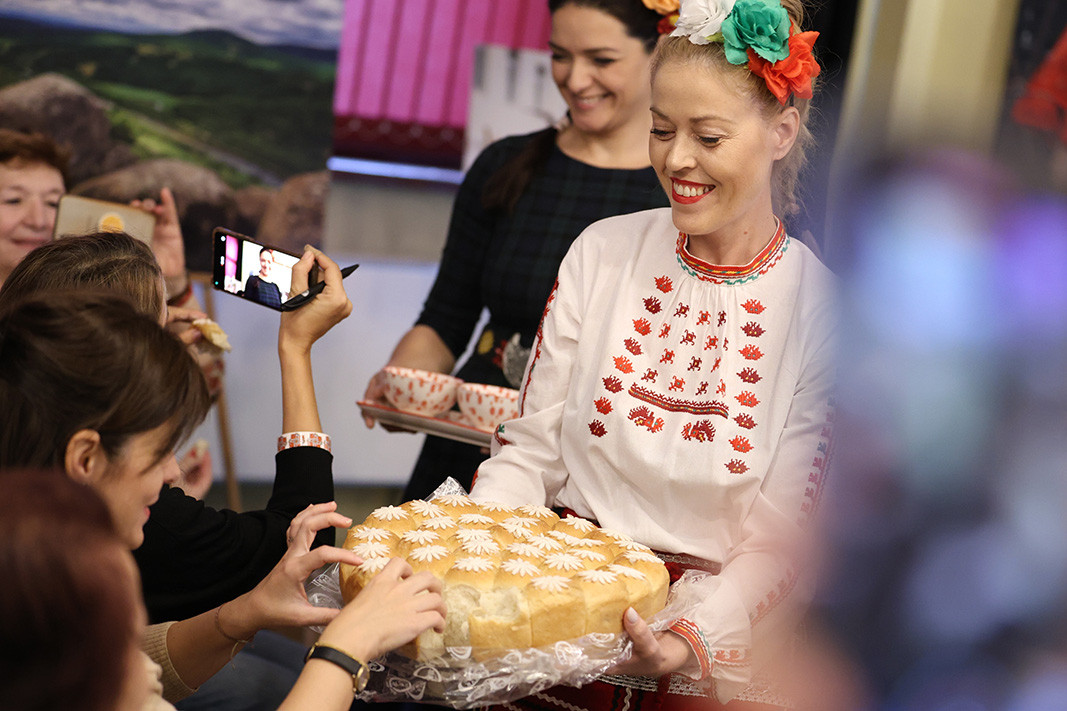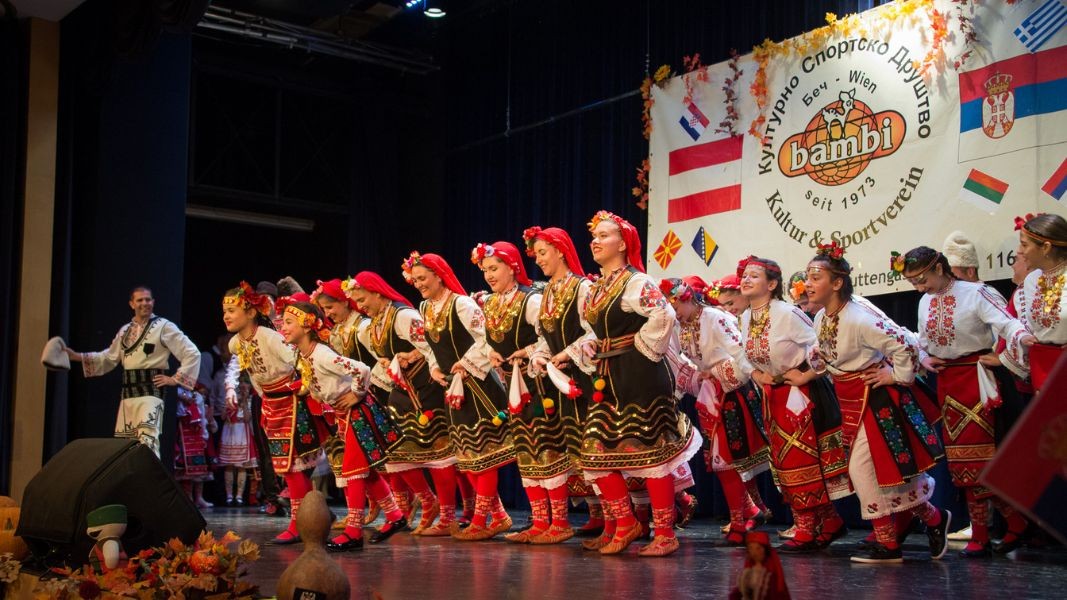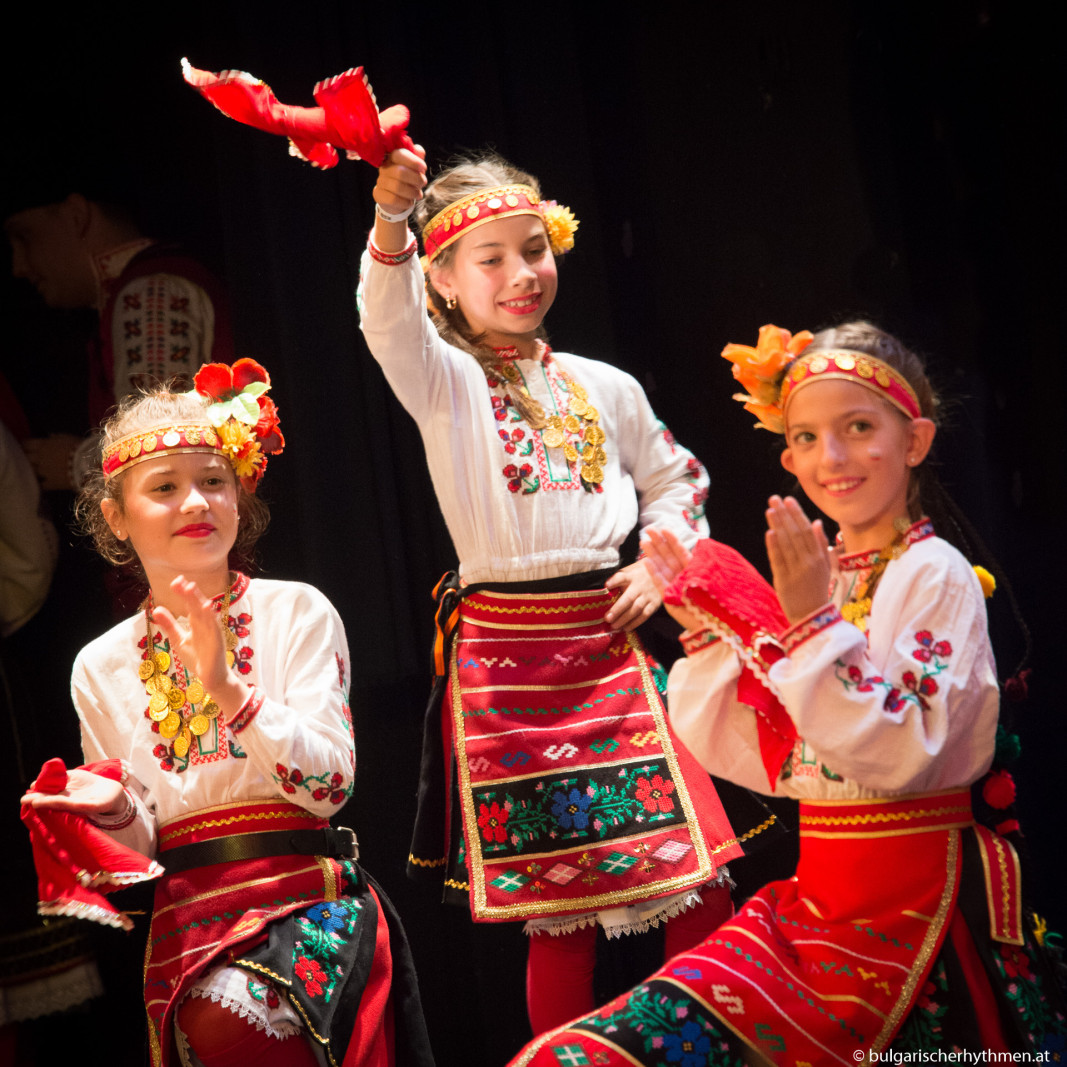The guests to the second creative meeting - seminar of the leaders of Bulgarian folklore ensembles abroad, which took place on November 11 and 12 in Sofia, were welcomed with the smell of bread, sweetened with honey. In addition to the useful exchange of experience, the meeting turned into a real celebration for Bulgarian compatriots abroad, connected to each other by the invisible threads of folklore dances and music. Bulgarians living in Norway, France, Spain, Italy, Germany or even the USA came to Sofia for the meeting.

At the seminar, participants discussed serious topics like establishing closer relationship between schools and centers for Bulgarian folklore abroad. Even their clothes showed that folklore is magic as everyone had some folk motif on them. Participants spoke about the fact that Bulgarian folklore is the great intangible wealth that every Bulgarian who chooses to live abroad carries with them. We also heard the words of Diana Stoeva from Vienna:
"Folklore is in the heart and cannot disappear. But when a person is abroad they feel this much more strongly and want to do their best for the Bulgarian spirit."

Diana is from Gorna Oryahovitsa. She has been singing folk songs since she was a child, and later in Sofia she continued with folk dances. By profession, Diana Stoeva is a mathematician and a lecturer at the University of Civil Engineering and Geodesy in Sofia. It was science that brought her to the Austrian capital:
"Even before I learned about the theory of music, I always thought as a mathematician that there must be some logic - why does rachenitsa has 7/8 time signature and Daichovo horo has 9/8? There is a logic to this,” says the leader of a Bulgarian folk ensemble in Vienna in an interview with Radio Bulgaria. “For example in 9/8 time signature, the fourth measure is extended one. This is pure mathematics, i.e. 2/8 plus 2/8, plus 3/8, which is extended, and we have 9/8. When I was studying dances I also realized that it's pure mathematics. There is a big connection between music and math.”
In her every step Diana Stoeva is guided by the desire to show the world the best of her homeland. During her first trips abroad, she made a presentation about the traditions and natural sights of Bulgaria. The foreigners thought that this was part of some marketing program and Diana explained that she did everything just because she was proud of Bulgaria. When she permanently settled abroad, she already had a diploma for leading a folk group and quite naturally joined the "Bulgarian Rhythms" Association – Vienna:

"I also had experience as a leader of dance groups from Sofia. In Vienna there was no children's group in the association. I started working with adults as well and the groups grew in number. In 2019, the second Bulgarian Sunday school opened doors and they invited me to create a children's group for folk dances. We, the people in folklore ensembles abroad, feel like we are in a little Bulgaria there, as we need to talk in Bulgarian, to be among close people when our families are far away. The children speak very fondly of Bulgaria and some were not even born there, but it is very important that the family transmits this love to the homeland and they are brought up that way from an early age. The role of Bulgarian schools is great, but it all starts with the parents."

Diana also has a significant role in making Bulgarian children in Vienna feel proud of their roots. For yet another year, she is preparing the children's group to go on stage and in front of an international audience. The children will perform on December 9 when a large charity bazaar organised by the United Nations Women's Guild (UNWG) is traditionally held in the Austrian capital. The Bulgarian dance group has been carefully preparing for the event and in its repertoire it has included traditional folk dances from different Bulgarian regions.
See also:
English publication: Al. Markov
Photos: BTA, Facebook/Bulgarischerhythmen
President Rumen Radev will today attend the opening ceremony of Forest Week in front of St Alexander Nevsky Cathedral. The theme of this year's celebrations is "A century of eternal creation, preservation and care!" This year marks the 100th..
For 100 years, foresters in Bulgaria have been organizing Forest Week. A concert entitled “A century of eternity” on 7 April will give the official start to the initiative dedicated to the planet’s lungs. And though it has been a century since..
The eagerly-awaited Tulip Parade at the University Botanical Garden in Balchik is at its peak. This year’s parade includes more than 45,000 bulbs, and 27 varieties that are new to the Garden, among them Tulipa "Carnaval de Nice, which combines..
Students and teachers from two educational companies of the National Commerce and Banking High School won awards at the global business competition Youth..
Shortly after the opening of the motorcycle season in Sofia at the end of March, Bulgaria's capital city will host the country's largest motorcycle..
Since its establishment on April 11, 2022, the Institute for Computer Science, Artificial Intelligence and Technology – INSAIT has..

+359 2 9336 661
